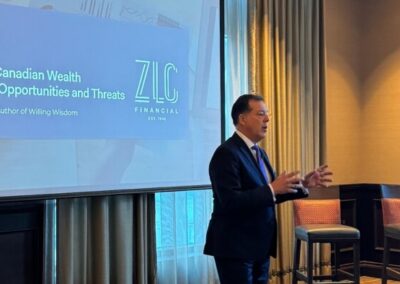Disruptors May Be Missing Key Issues for Employee Benefits
More and more we hear references to the word Disruptors in various industries, including employee benefits. Some new players are entering the market with promises to revolutionize benefits programs and thus make them more appealing to employees. Other new players are promising to provide other human resource services for “free” if you purchase your employee benefits through them. However, is what they are offering really all that new and can you really get “something for nothing” in the long run?
Perhaps there is an underlying reason why many parts of the employee benefits offering have remained intact and connected to a broader HR strategy over the last 30 years. Employers continue to provide benefits that include life and disability insurance along with extended health and dental benefits, and employees continue to value them for the most part. Risks around income protection in the event of disability and cash payouts for beneficiaries in the event of death continue to be needed as the underlying risks are still unchanged. Extended health and dental benefits are arguably even more important now as governments continue to download (or delay taking on) new drugs and services.
So what is the uproar really about, is there anything new really happening here, and do these new disruptors in the employee benefits industry hit the mark? We offer the following key issues for your consideration:
- Cost – Undoubtedly employees are looking for more from their employers, particularly in a tightening labour market. However, employers have struggled to offer more because of the underlying cost. In fact, employers are struggling to simply maintain their current employee benefits programs given that costs are projected to increase by approximately 8-10% going forward. So why would a “Disruptor” promote, for example, airline vouchers for vacation when isn’t that really what an employee’s regular earnings are for?
- Invincibility – Over the last decade we have seen new attitudes and preferences from younger employees – their apparent invincibility. This has led to a lack of appreciation for many of the traditional employee benefits like life, disability and drug insurance. Many in this group would rather have more massage therapy than protection from catastrophic risks. That said, employers have to decide what level of “paternalism” they want in their plans – or more importantly what level of reputational risk they are willing to incur. So why would a “Disruptor” allow an employee to opt out of drug coverage only to see that employee subsequently unable to afford their annual $30-40,000 bill for a drug therapy not covered by the government?
- Utilization – The “Pareto Principle (80/20 Rule)” also holds true in the employee benefits industry – about 80% of employee benefits costs are driven by 20% of employees and, in turn, 80% of employees drive only 20% of plan costs. In today’s world of privacy, we may not know who these employees are and it might not be their fault that they are suffering from an illness that prevents them from working and requires high cost drugs, supplies and therapy. So why would a “Disruptor” allow the relatively healthy employees to shift their unused dollars without increasing costs when the remaining higher-cost users would then be financially punished with higher premium rates?
- Risk Management – It might be nice to redirect money within your current plan – for example, allow employees who do not wear glasses to have more paramedical coverage. However, if your plan is insured with a carrier, this type of “anti-selection” will undoubtedly cost you in terms of higher premiums as it violates a basic tenant of group benefits insurance. So why would a “Disruptor” promote the idea of moving some of those dollars to a Health Care Spending Account as a new idea, when it really has been around a long time? And so why would a “Disruptor” not promote the fact that there will always be winners and losers, and you really need to understand how to manage these risks?
- Communication – One of the key issues is effectively communicating with employees and convincing them that there is value in benefits that we hope they will never use. None of us plan to die or become permanently disabled, so it is not surprising when these benefits are not necessarily valued as much as we would like. However, you cannot buy home insurance after your house burns down and the same applies to employee benefits. So why aren’t “Disruptors” simply promoting to help employees better understand real risks in their lives and better appreciate the role current employee benefits play?
- Experience – Some of the new ideas being generated in the employee benefits industry are being generated by individuals with little or no experience in the group benefits industry. While it is no doubt beneficial to challenge the status quo, it is also important that ideas be well-tested to ensure they are sustainable in the long term and that the related cost implications are predictable. And after the new idea is sold, who is available at the “Disruptor” to provide ongoing support and service around benefits plan management and issues related to administration, claims and service. So why would a “Disruptor” promote new ideas in the short term when they may not have the skills, reputation and experience to support clients in the long term?
One positive development related to the recent increase in “Disruptors” is a stronger focus on better tools and resources. When employees have access to better tools they are going to value their benefits more but many of those tools (i.e., “smart phone apps”) are already available from the traditional insurance carriers so there is nothing really revolutionary here. However, if technology is important to you as a plan sponsor, why not make it the focal point of a plan marketing rather than focusing just on cost containment. Note there are also other independent industry providers that can provide access to web/app-based Health Care and Taxable Spending Accounts. Again, we have always had access to these tools and resources but they continue to change, so do we really need a “Disruptor” that may be ignoring some of the more fundamental issues noted above that have kept employee benefits intact.
Note that at ZLC Financial we believe there is a better way for employee benefits, but we also believe the solution is not in “throwing the baby out with the bath water”. We are concerned that these new “Disruptors” are attracting attention with flashy ideas in the short term but are missing the key issues for employee benefits in the long term. Instead we recommend reviewing your current and future employee needs, understanding the financial reality for your company around projected inflation trends, and developing a benefits program that works for you in the long term and truly supports your broader HR strategy and business plan.
Each organization’s needs are unique and warrant a customized solution. We would be pleased to discuss your specific situation with you to identify the best strategy with respect to your employee benefits program. Should you have any questions on the above, please don’t hesitate to contact me or a member of our team.
ZLC Financial is one of the fastest growing employee benefits advisors in Western Canada and we are fortunate to have the best people, resources and clients. Our goal is to work with you to find a better way for your employee benefits plan. We provide this value to you by leveraging one of the most skilled benefits teams in the city – over 250 years of experience within our team of 13 employee benefits specialists. We have been working with businesses ranging from 4 to over 10,000 employees for the past 30 years.
By Dan Eisner
Update: to follow this series and more, you can read subsequent articles where we dive into each of these issues further, such as the issues of Cost, Invincibility, Risk Management Communication and Experience.




